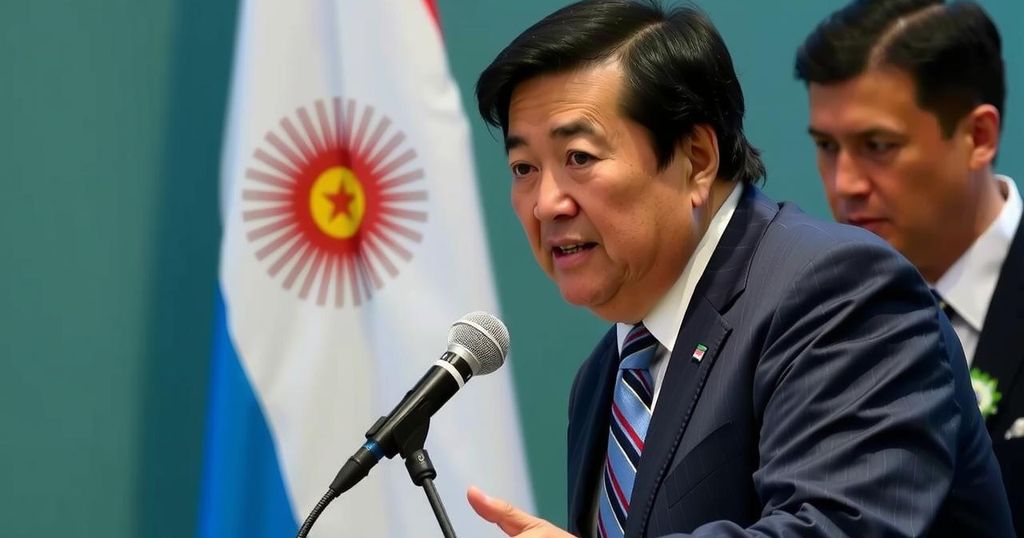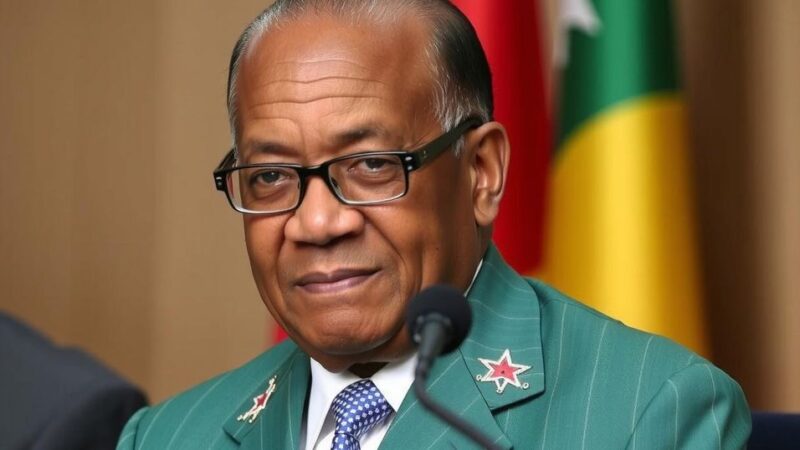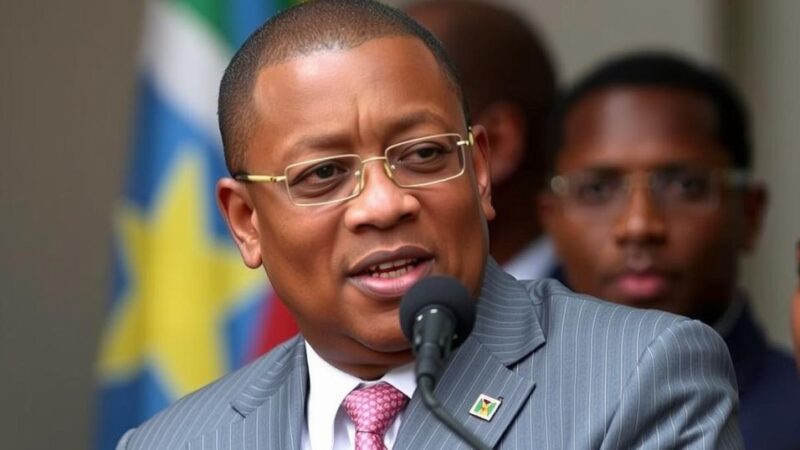Argentina’s President Javier Milei dismissed Foreign Minister Diana Mondino following a UN vote to lift the US embargo on Cuba, a decision seen as creating diplomatic discomfort with the US and Israel. Gerardo Werthein has been appointed to replace Mondino. Argentina’s historical opposition to the embargo, along with potential implications for sovereignty claims over the Falkland Islands, remains critical to its foreign relations.
On Wednesday, President Javier Milei of Argentina dismissed Foreign Minister Diana Mondino following the country’s vote at the United Nations to lift the long-standing US embargo on Cuba. The official announcement was made by presidential spokesperson Manuel Adorni via the social media platform X, where he also stated that Mr. Gerardo Werthein, formerly Argentina’s ambassador to the United States, would succeed Mondino in this role. Argentina joined 186 other UN member states in supporting the resolution to end the embargo that has been in effect since 1962. The only dissenting votes came from the United States and Israel, both of which are allies of Milei. Additionally, one country, Moldova, chose to abstain from the vote. In the wake of Mondino’s removal, President Milei retweeted a comment from a lawmaker expressing pride in his government’s stance against supporting oppressive regimes, particularly regarding Cuba. Historically, Argentina has opposed the embargo imposed on Cuba. Reports from local media have highlighted the potential diplomatic challenges of having voted against the United States and Israel, indicating that the support of Cuba and its allies might be crucial for Argentina’s future claims concerning sovereignty over the Falkland Islands, a British territory.
The decision by the Argentine government to vote in favor of lifting the US embargo on Cuba marks a significant shift in diplomatic relations for the nation. With such a vote, Argentina aligns with a broad coalition of countries advocating for the end of sanctions against Cuba, which has been a contentious issue since the embargo was first established in 1962. The historical context of the embargo centers around the geopolitical tensions of the Cold War, and the implications of such actions are closely monitored by regional allies and adversaries alike. Diplomatic relationships must be balanced carefully, especially considering Argentina’s ongoing sovereignty claims over the Falkland Islands, which may require support from various nations in future international negotiations.
In summary, the dismissal of Foreign Minister Diana Mondino by President Javier Milei underscores the complexities of Argentina’s foreign policy decisions, particularly in relation to Cuba and its long-standing embargo. The appointment of Gerardo Werthein may suggest a new phase in diplomatic relations, as Argentina navigates the delicate balance between its historical positions and the expectations of its allies. This incident illustrates the intricate interplay of international diplomacy, domestic governance, and the repercussions of voting behavior within the UN framework.
Original Source: www.barrons.com







